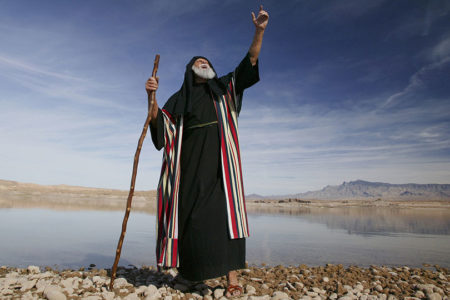Eye On the Middle East Sep/Oct 2013
Though lacking the pizazz of typical rags-to-riches stories, the saga of the thousands of Ethiopians who have immigrated to Israel is one worth telling. In many ways, their experience is similar to those of others who came: They endured anti-Semitism and persecution, and many heard an inexplicable voice calling them to their ancient homeland.
But their story is also different because they faced challenges unlike those of other immigrants, most of whom came from developed nations; and knitting the Ethiopians into the fabric of the tiny country has posed a unique challenge. But Israel has risen to the occasion.
In Ethiopia, these people are known as Falashas (“aliens, outcasts”). They lived and scratched out an impoverished existence like many other Africans, and the color of their skin makes them look like other Africans. But the government treated them like outcasts to the point of exile and starvation. Why? Because they are Jews. They call themselves Beta Israel (“House of Israel”). From the squalor of their thatched huts, they read from the Torah, followed biblical practices, and considered Jerusalem the Holy City.
Though the chief rabbis from 45 countries affirmed them as Jewish in 1908, the Ashkenazic and Sephardic chief rabbis did not concur and worried they would present a shanda fur di goyim (Yiddish for “an embarrassment in front of the non-Jews”). In the first 25 years of its existence, the State of Israel did little to advocate for Beta Israel.
Meanwhile, these Ethiopian Jews endured more persecution, mass starvation, and sometimes even slavery. Finally, in 1972, Sephardi Chief Rabbi Ovadia Yosef declared, “Falashas are Jews.” Three years later Ashkenazi Chief Rabbi Shlomo Goren agreed, calling them “brothers” and declaring, “You are Jews.”
Once this official declaration was made, four waves of immigration spanning more than 30 years brought 33,000 Ethiopian Jews to Israel. Operation Moses, which flew more than 7,000 to Israel in approximately six weeks, and Operation Solomon, which flew 15,000 in a mere 36 hours, are among the greatest immigration achievements in Israel’s history.
But mainstreaming Beta Israel into Israeli society has been a challenge. Unlike previous immigrants, who were well-educated and white, these immigrants from the Third World were primitive and black.
To say they experienced culture shock in Israel is an understatement. They were not familiar with bathrooms, electricity, or the Hebrew language—to name a few things. To address their situation immediately, the government created absorption centers to house and train these new Israelis for at least a year, teaching them the language and culture.
For many, especially the elderly, adjusting to Israeli life remains a challenge. In a recent survey, the Industry, Trade and Labor Ministry found that Ethiopians are the least likely people to be hired. They rank last by employers, even behind Muslim Arabs.
Yet the story here is the determination of Israel and Beta Israel to work together to overcome these challenges. In 1999 Avraham Yitzhak became the first Ethiopian immigrant to earn a medical degree. In 2000 the female-owned Ethiopian Embroidery Center was established, selling its goods to a fair-trade store in Tel Aviv. In 2009, Tzion Shenkor became the first Ethiopian to be promoted to the rank of lieutenant colonel in the Israel Defense Forces. In February 2012 the Foreign Ministry named Belaynesh Zevadia the first Israeli of Ethiopian origin as ambassador to Ethiopia. This past January, the first Ethiopian woman was elected to the Knesset; and in February, 21-year-old Yityish Aynaw was crowned Miss Israel 2013.
When Foreign Minister Belaynesh Zevadia was interviewed about the challenges Ethiopians face in Israel, she said, “We start with one….Our community has a lot of problems, yes, but we ourselves are the solution.”
In a world that condemns Israel as an apartheid, racist, imperialist country, the Beta Israel story is one that proves the world wrong.






